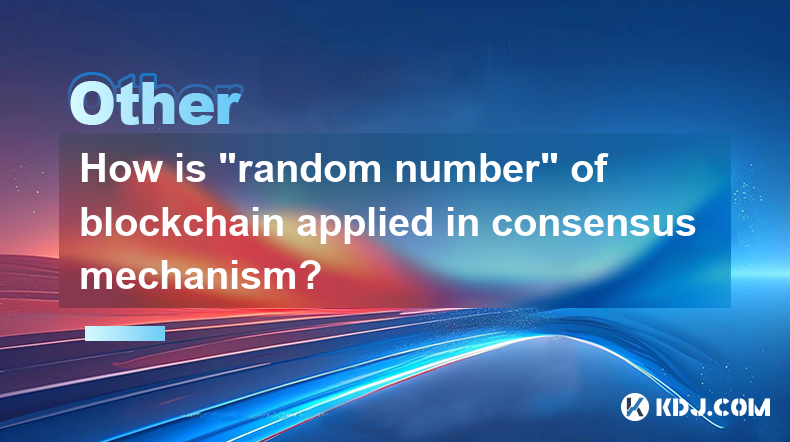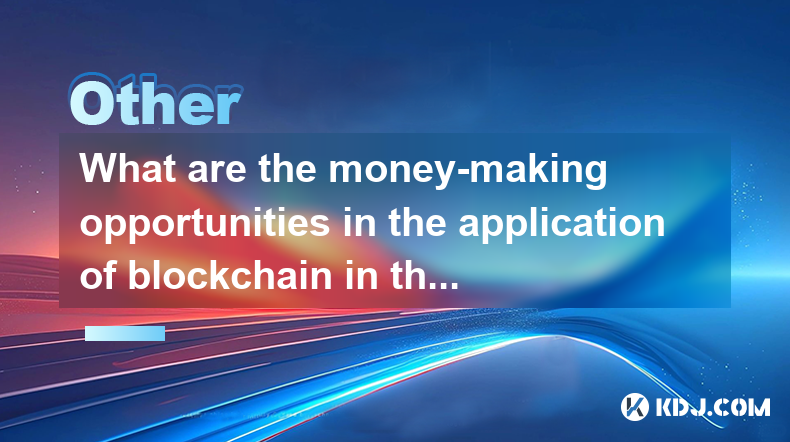-
 Bitcoin
Bitcoin $77,191.9477
-6.74% -
 Ethereum
Ethereum $1,492.8605
-16.42% -
 Tether USDt
Tether USDt $0.9993
-0.01% -
 XRP
XRP $1.7920
-14.09% -
 BNB
BNB $543.9961
-7.47% -
 USDC
USDC $1.0000
0.02% -
 Solana
Solana $101.3540
-14.80% -
 TRON
TRON $0.2261
-5.08% -
 Dogecoin
Dogecoin $0.1398
-14.63% -
 Cardano
Cardano $0.5552
-12.79% -
 UNUS SED LEO
UNUS SED LEO $8.9369
-1.77% -
 Toncoin
Toncoin $2.9987
-9.59% -
 Chainlink
Chainlink $10.7976
-14.19% -
 Stellar
Stellar $0.2195
-12.13% -
 Avalanche
Avalanche $15.6657
-8.90% -
 Shiba Inu
Shiba Inu $0.0...01095
-9.29% -
 Sui
Sui $1.8429
-14.31% -
 MANTRA
MANTRA $6.1267
-1.79% -
 Hedera
Hedera $0.1370
-12.66% -
 Polkadot
Polkadot $3.4473
-12.39% -
 Dai
Dai $1.0000
0.00% -
 Bitcoin Cash
Bitcoin Cash $261.2780
-11.02% -
 Ethena USDe
Ethena USDe $0.9984
-0.05% -
 Litecoin
Litecoin $66.8634
-17.60% -
 Bitget Token
Bitget Token $3.8846
-12.17% -
 Pi
Pi $0.5634
-7.24% -
 Monero
Monero $195.2045
-9.10% -
 Hyperliquid
Hyperliquid $10.1976
-10.49% -
 Uniswap
Uniswap $4.9617
-13.59% -
 OKB
OKB $48.9454
-10.29%
How is "random number" of blockchain applied in consensus mechanism?
Randomness is crucial in blockchain consensus mechanisms like PoS and PoW to prevent manipulation and ensure fairness, often generated using cryptographic hash functions and VRFs.
Apr 04, 2025 at 05:42 pm

The Role of Randomness in Blockchain Consensus
Blockchain technology relies heavily on consensus mechanisms to ensure the integrity and security of the network. These mechanisms determine how new blocks of transactions are added to the blockchain, and a crucial element in many of these mechanisms is the generation of random numbers. This randomness is vital for preventing manipulation and ensuring fairness amongst participating nodes. Without it, malicious actors could potentially gain undue influence over the blockchain's state.
Different Consensus Mechanisms and Their Use of Randomness
Several consensus mechanisms utilize randomness in different ways. Let's explore some prominent examples.
Proof-of-Stake (PoS): In PoS, validators are chosen proportionally to the amount of cryptocurrency they stake. However, simply selecting the validator with the most stake opens the door to potential manipulation. Therefore, many PoS systems incorporate randomness to select validators. This randomness helps prevent a single, powerful entity from dominating the validation process. The specific methods for introducing randomness vary, often involving cryptographic hash functions and block timestamps.
- A common approach involves using a verifiable random function (VRF) to generate a random number based on the validator's stake and other factors.
- Another method might involve using a combination of the current block hash and the validator's stake to determine a probability of selection.
Proof-of-Work (PoW): While not explicitly using random number generation in the selection process, PoW implicitly relies on randomness through the mining process itself. The difficulty adjustment mechanism ensures that the average time to find a valid block remains relatively constant. The "randomness" comes from the unpredictable nature of finding a hash that meets the difficulty target. This inherent randomness is crucial for preventing manipulation and ensuring fairness in block creation. However, this randomness is less controlled and verifiable than in PoS mechanisms.
Random Beacon: Some blockchain projects employ a dedicated "random beacon" to provide a source of randomness for various applications, including consensus mechanisms. These beacons use cryptographic techniques to generate unpredictable and verifiable random numbers. The goal is to create a trusted source of randomness that is resistant to manipulation by any single entity. This approach is particularly important in systems where security and fairness are paramount. A robust random beacon is designed to be resistant to attacks such as Sybil attacks, where a single entity controls many nodes.
- Often, a random beacon combines inputs from multiple sources to enhance its security and randomness.
- The output of the random beacon can be used in various aspects of the consensus mechanism, such as validator selection or transaction ordering.
Challenges in Implementing Randomness
Implementing truly random number generation in a distributed system like a blockchain presents significant challenges. The primary concern is ensuring that the generated numbers are both random and verifiable by all participants. A compromised random number generator could lead to a compromised consensus mechanism.
- Bias: Even well-designed algorithms can exhibit subtle biases, which could be exploited by malicious actors. Careful analysis and testing are essential to mitigate this risk.
- Predictability: If an attacker can predict the random numbers generated, they can manipulate the consensus mechanism to their advantage. Cryptographic techniques are crucial in preventing such predictability.
- Verifiability: All participants must be able to verify that the generated numbers are indeed random and haven't been tampered with. Transparency and cryptographic proofs are key to achieving this verifiability.
The Importance of Cryptographic Hash Functions
Cryptographic hash functions play a critical role in generating random numbers for blockchain consensus mechanisms. These functions take an input of any size and produce a fixed-size output, which is practically impossible to reverse engineer. The output appears random even if the input is not. This property is essential for ensuring the unpredictability of the generated numbers. Examples of commonly used hash functions include SHA-256 and SHA-3.
Verifiable Random Functions (VRFs)
VRFs are a special type of cryptographic function that provides both randomness and verifiability. They allow a single entity to generate a random number, while also allowing others to verify that the number was generated correctly and without manipulation. This property is particularly useful in consensus mechanisms where participants need to trust the randomness of the selection process.
Security Implications of Poor Randomness
The use of flawed or predictable random number generators can have severe security implications for a blockchain. It could allow malicious actors to:
- Control block creation: By predicting the random numbers, attackers could gain disproportionate control over the addition of new blocks to the blockchain.
- Manipulate transaction ordering: If the transaction ordering is influenced by a predictable random number generator, attackers could prioritize their transactions over others.
- Launch denial-of-service attacks: By disrupting the random number generation process, attackers could potentially bring down the entire blockchain network.
Frequently Asked Questions
Q: What are the consequences of a non-random consensus mechanism?
A: A non-random consensus mechanism can lead to centralization, where a few powerful entities control the network. This undermines the core principles of decentralization and security that blockchain aims to achieve. It also increases the risk of manipulation and censorship.
Q: How is randomness ensured in a distributed environment?
A: Randomness is ensured through cryptographic techniques like VRFs and by combining inputs from multiple sources (e.g., block hashes, timestamps, and validator stakes) to make prediction extremely difficult. The goal is to create a system where no single entity can influence the outcome.
Q: Can quantum computing threaten the randomness used in blockchain consensus?
A: Yes, future quantum computers could potentially break some of the cryptographic algorithms currently used to generate random numbers. Research into quantum-resistant cryptographic techniques is ongoing to address this potential threat. The transition to post-quantum cryptography will be crucial to maintaining the security of blockchain consensus mechanisms.
Q: Are all blockchain consensus mechanisms equally reliant on random number generation?
A: No, the degree of reliance on random number generation varies across different consensus mechanisms. PoS mechanisms generally rely more heavily on randomness for validator selection than PoW mechanisms, which rely on the inherent randomness of the mining process. However, even PoW mechanisms benefit from randomness in aspects like difficulty adjustment.
Disclaimer:info@kdj.com
The information provided is not trading advice. kdj.com does not assume any responsibility for any investments made based on the information provided in this article. Cryptocurrencies are highly volatile and it is highly recommended that you invest with caution after thorough research!
If you believe that the content used on this website infringes your copyright, please contact us immediately (info@kdj.com) and we will delete it promptly.
- IntelMarkets (INTL) May Experience a 360% Price Jump Soon as Its Pre-sale Event Concludes
- 2025-04-07 18:35:12
- 10 Best Ethereum (ETH) APIs for Developers After the “Dencun” Upgrade
- 2025-04-07 18:35:12
- XRP price crashed to a crucial support level on Monday morning, signaling that bears are about to prevail and push it lower.
- 2025-04-07 18:30:12
- Bitcoin (BTC) Price Slides Below $75,000, Futures Open Interest (OI) Plummets
- 2025-04-07 18:30:12
- Market-leading digital asset Bitcoin BTC $75 668
- 2025-04-07 18:25:12
- Ethereum Price Crash Sparks Massive Whale Liquidations Amid Crypto Turmoil
- 2025-04-07 18:25:12
Related knowledge

Is the ranking of Chinese blockchain apps real and reliable?
Apr 04,2025 at 09:01pm
The ranking of Chinese blockchain apps has become a topic of interest for many in the cryptocurrency community, as it provides insights into the popularity and adoption of blockchain technology within China. However, the reliability and authenticity of these rankings are often questioned. This article aims to delve into the factors that influence these ...

What are the future development trends of blockchain game development?
Apr 03,2025 at 05:00am
Blockchain technology has revolutionized various industries, and gaming is no exception. As we look to the future, several trends are set to shape the development of blockchain games. These trends not only promise to enhance the gaming experience but also to integrate blockchain technology more seamlessly into the gaming ecosystem. Let's explore these t...

What are the high-return opportunities for blockchain investments?
Apr 05,2025 at 02:35pm
Blockchain technology has revolutionized the financial world, offering numerous high-return investment opportunities. These opportunities span various sectors within the cryptocurrency ecosystem, including cryptocurrencies, decentralized finance (DeFi), non-fungible tokens (NFTs), and blockchain startups. Each of these areas presents unique risks and re...

What are the maintenance costs of blockchain system development?
Apr 03,2025 at 06:07pm
The maintenance costs of blockchain system development are multifaceted and depend on various factors. These costs can include technical maintenance, security updates, infrastructure expenses, and personnel costs. Understanding these elements is crucial for anyone planning to develop or maintain a blockchain system. Technical MaintenanceTechnical mainte...

What are the money-making models of blockchain games?
Apr 04,2025 at 02:00pm
Blockchain games have emerged as a revolutionary way for players to earn real money while enjoying their favorite pastime. These games leverage the power of blockchain technology to create unique money-making models that benefit both the players and the developers. In this article, we will explore the various money-making models of blockchain games and ...

What are the money-making opportunities in the application of blockchain in the field of Internet of Things?
Apr 05,2025 at 10:35pm
The integration of blockchain technology with the Internet of Things (IoT) presents numerous money-making opportunities. Blockchain, with its decentralized and secure nature, can revolutionize how IoT devices interact, manage data, and conduct transactions. This article will explore various avenues where entrepreneurs, developers, and investors can capi...

Is the ranking of Chinese blockchain apps real and reliable?
Apr 04,2025 at 09:01pm
The ranking of Chinese blockchain apps has become a topic of interest for many in the cryptocurrency community, as it provides insights into the popularity and adoption of blockchain technology within China. However, the reliability and authenticity of these rankings are often questioned. This article aims to delve into the factors that influence these ...

What are the future development trends of blockchain game development?
Apr 03,2025 at 05:00am
Blockchain technology has revolutionized various industries, and gaming is no exception. As we look to the future, several trends are set to shape the development of blockchain games. These trends not only promise to enhance the gaming experience but also to integrate blockchain technology more seamlessly into the gaming ecosystem. Let's explore these t...

What are the high-return opportunities for blockchain investments?
Apr 05,2025 at 02:35pm
Blockchain technology has revolutionized the financial world, offering numerous high-return investment opportunities. These opportunities span various sectors within the cryptocurrency ecosystem, including cryptocurrencies, decentralized finance (DeFi), non-fungible tokens (NFTs), and blockchain startups. Each of these areas presents unique risks and re...

What are the maintenance costs of blockchain system development?
Apr 03,2025 at 06:07pm
The maintenance costs of blockchain system development are multifaceted and depend on various factors. These costs can include technical maintenance, security updates, infrastructure expenses, and personnel costs. Understanding these elements is crucial for anyone planning to develop or maintain a blockchain system. Technical MaintenanceTechnical mainte...

What are the money-making models of blockchain games?
Apr 04,2025 at 02:00pm
Blockchain games have emerged as a revolutionary way for players to earn real money while enjoying their favorite pastime. These games leverage the power of blockchain technology to create unique money-making models that benefit both the players and the developers. In this article, we will explore the various money-making models of blockchain games and ...

What are the money-making opportunities in the application of blockchain in the field of Internet of Things?
Apr 05,2025 at 10:35pm
The integration of blockchain technology with the Internet of Things (IoT) presents numerous money-making opportunities. Blockchain, with its decentralized and secure nature, can revolutionize how IoT devices interact, manage data, and conduct transactions. This article will explore various avenues where entrepreneurs, developers, and investors can capi...
See all articles





















































































